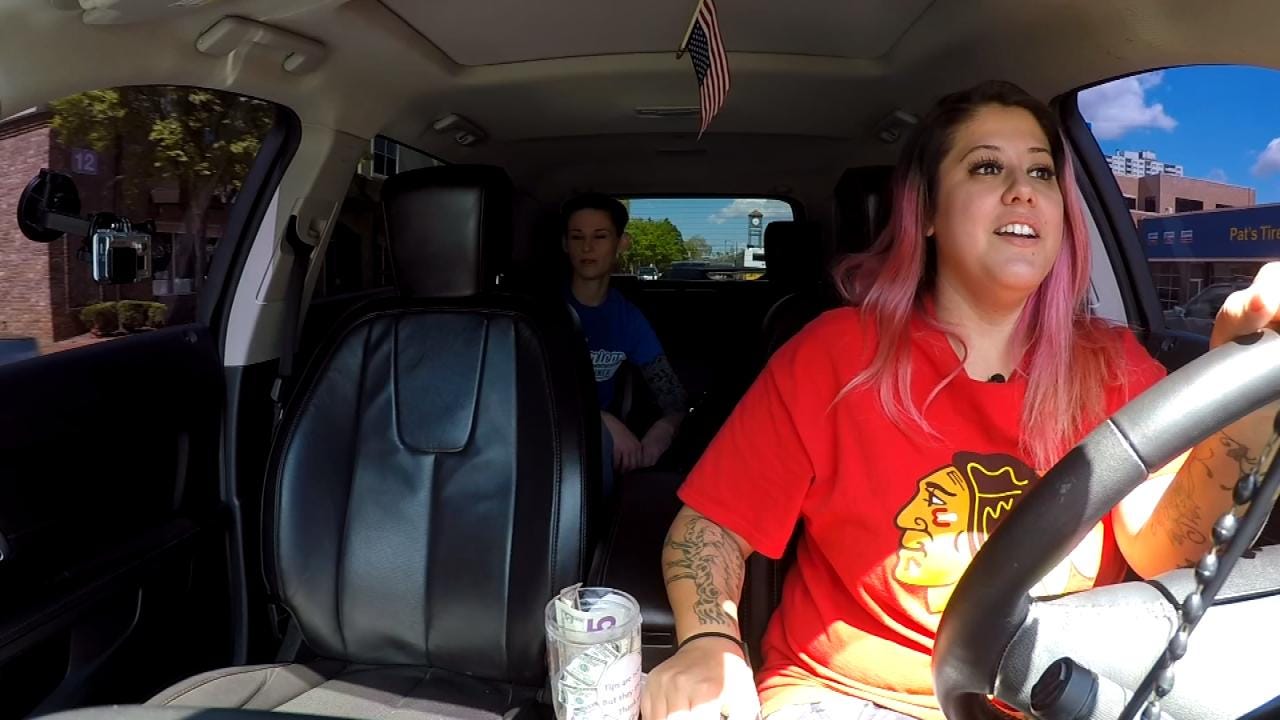'Gig' Economy Grows In Oklahoma
<p>We live in an on-demand world and because of that a non-traditional economy is thriving. Apps like UBER and AirBNB give workers flexibility and consumers a choice. </p>Wednesday, July 19th 2017, 4:47 pm
We live in an on-demand world and because of that a non-traditional economy is thriving. Apps like UBER and AirBNB give workers flexibility and consumers a choice.
"I like the freedom," said UBER Driver Alicia Killman.
When Killman goes to work, she never knows quite where she'll end up.
"It could be from downtown to Edmond to Midwest City," she said.
After serving five years in the military, the stay at home mom became an UBER driver to earn some extra cash.
"Months and months went by, I started seeing it was hard to pay for bills and we weren't making ends meet," Killman said.
So she drives more than 100 miles each week mapping out her moves on the road.
"It's effortless, it's the easiest job i could have ever wished for and hoped for," she said.
The job allows her to set her own schedule, giving her time to go back to school to become a chef.
"It's like a creative outlet," Killman said about preparing food. "It's really relaxing to me."
Killman is among hundreds of thousands of drivers giving rides on demand. It's a growing industry that also includes renting rooms.
"I've met a lot of really nice people that are traveling through," said BC Summers.
Summers rents out a house in downtown Oklahoma City through AirBNB, an online marketplace and hospitality service that enables people to lease or rent short-term lodging.
"It's different than a hotel, you're here to like experience someone else's way of living," she said.
She shares her quirky lifestyle with her guests the moment they step through the door.
"Everything in this house is all salvaged or recycled or upcycled," Summers said.
She has a zest for the zany running a recycled art center out of the home. She uses her rental profits to put back into her business.
"We don't charge a lot but it brings in a little bit of extra so that we can buy tools to share with the community," she said.
Recent research from Brookings Institute shows in Oklahoma City, the number of drivers offering rides through apps like UBER and LYFT surged 82 percent in 2015 alone, while the number of people renting out rooms grew 10 percent from 2012 to 2014.
"It really challenges the existing paradigm of how business is done," said Jeff Simmons, Dean of College of Business at Oklahoma Christian University.
Simmons calls these on-demand apps disruptors.
"It's challenging the regulatory environment as well as existing competitors because a lot of people are still trying to figure out how do we treat this phenomenon that's happening and how do we best protect the consumer but also allow the free market to happen," Simmons said.
Gig jobs may allow workers the benefit of when they want to work, but they lose others like health insurance and 401Ks, that traditional employment can offer.
And with more apps entering the market all the time, the future of how these on-demand jobs will impact the economy is yet to be seen.
More Like This
July 19th, 2017
September 29th, 2024
September 17th, 2024
Top Headlines
December 11th, 2024
December 11th, 2024
December 11th, 2024










